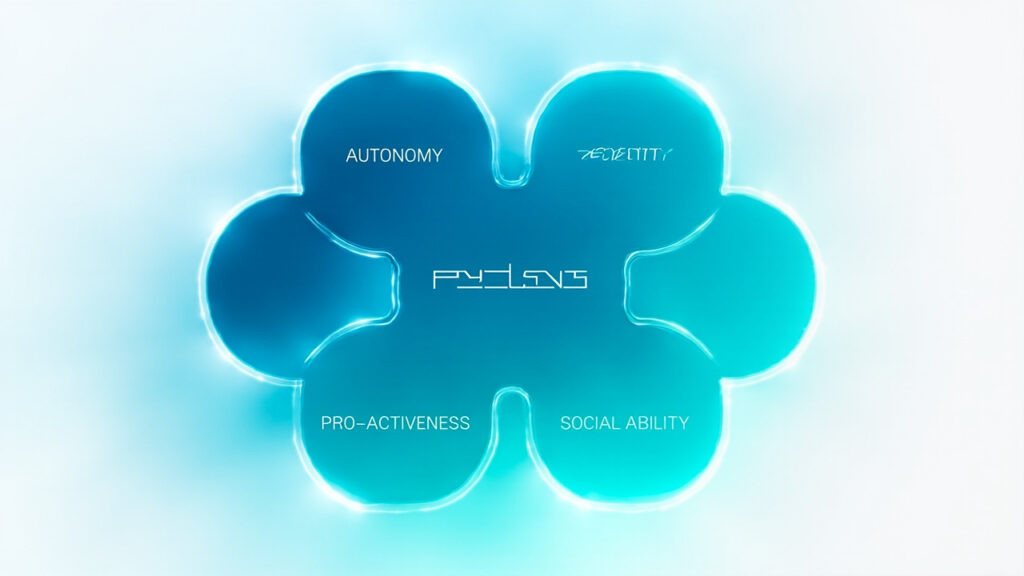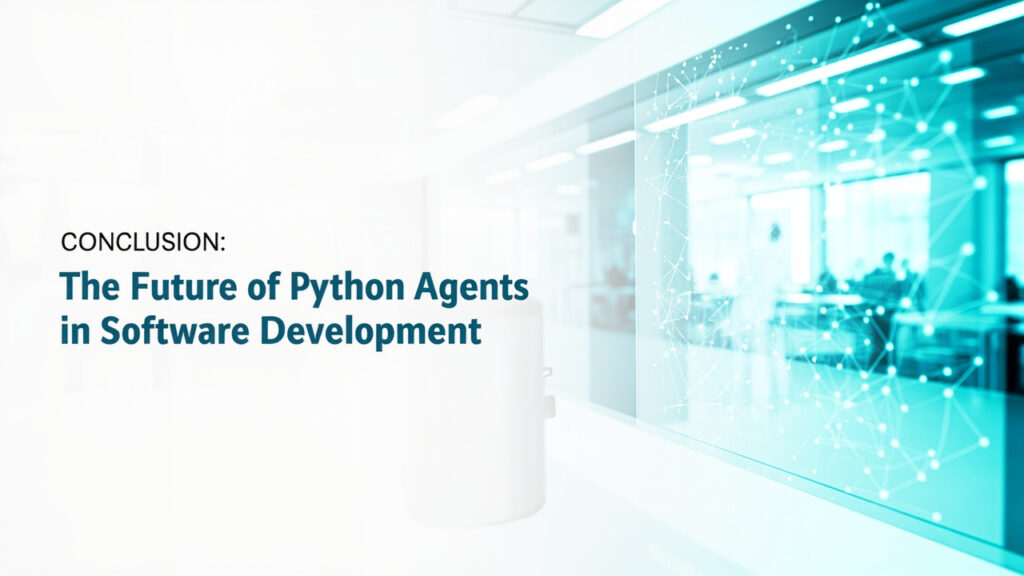In the rapidly evolving field of software engineering, Python has emerged as a linchpin for developing sophisticated software solutions. Among its many applications, Python agents stand out as a dynamic tool for automating tasks, enhancing performance, and improving software quality. In this comprehensive exploration, we delve into the world of Python agents, examining their role, applications, and how they are revolutionizing software development practices.
Python agents are essentially software entities that act autonomously within a program to perform operations or manage processes. These agents can be designed to make decisions, learn from data, and interact with other software agents or services. The flexibility and power of Python make it an ideal language for developing such agents, particularly in complex environments like web development, network management, and artificial intelligence.
As we navigate through this post, we will uncover the layers of Python agents, their integration in various domains, and how advanced tools like GenQE can enhance their effectiveness. Whether you are a developer, a software quality engineer, or simply a technology enthusiast, understanding the capabilities of Python agents will provide you with insights into their transformative potential in the tech landscape.
Understanding Python Agents: Definitions and Core Concepts

Python agents are not just scripts; they are intelligent programs capable of performing autonomous actions. To fully appreciate their capabilities, it’s essential to grasp the key concepts and definitions that underpin these powerful tools.
What are Python Agents?
At its core, a Python agent is a self-contained unit of software that performs tasks autonomously without human intervention. These tasks can range from simple functions like sending automated responses to complex decision-making processes based on AI algorithms.
Characteristics of Python Agents
Python agents are characterized by several key features:
- **Autonomy**: The ability to operate independently.
- **Reactivity**: The capacity to perceive and respond to changes in the environment.
- **Pro-activeness**: Initiating actions to achieve specific goals.
- **Social ability**: Interacting with other agents and services to complete tasks.
These characteristics make Python agents ideal for scenarios where rapid and intelligent responses are required.
Applications of Python Agents in Industry

Python agents find their applications in a myriad of sectors, demonstrating their versatility and effectiveness across different industries.
Web Automation and Scraping
Python agents automate interactions with web pages, from filling out forms to scraping data. Libraries like Selenium and BeautifulSoup simplify these tasks, but integrating Python agents can take automation to a new level.
Network Management
In network management, Python agents can monitor network traffic, detect anomalies, and automatically respond to security threats or failures, enhancing the robustness of network infrastructures.
Artificial Intelligence and Machine Learning
Python’s robust AI and machine learning libraries like TensorFlow and PyTorch enable agents to learn from data and make informed decisions, crucial for applications like predictive maintenance and personalized user experiences.
The Role of Python Agents in Enhancing Software Quality

Python agents can significantly impact software quality by automating tests, detecting bugs, and providing real-time feedback.
Automated Testing
Python agents can automate the execution of test cases, identify defects, and provide insights into software performance, significantly reducing manual efforts and enhancing test coverage.
Continuous Integration and Deployment
In CI/CD pipelines, Python agents can automate the build, test, and deployment processes, ensuring that new code changes do not break the existing functionality and adhere to quality standards.
Performance Monitoring
Python agents monitor applications in real-time, track performance metrics, and alert developers about potential issues before they affect users, ensuring a seamless user experience.
Integration of Advanced Tools: The Case for GenQE

While Python agents are potent on their own, their capabilities can be significantly enhanced by integrating advanced tools like GenQE. This AI-powered software testing platform can augment the functionalities of Python agents, especially in scenarios involving complex test environments and high demands on software quality.
Enhancing Test Automation
GenQE’s AI-driven test generation complements Python agents by creating comprehensive, efficient test cases, reducing the reliance on manual test design and ensuring thorough coverage.
Intelligent Analysis and Reporting
With its advanced analytics and AI-powered defect detection, GenQE provides Python agents with deep insights into software quality trends, enabling proactive improvements and informed decision-making.
Seamless DevOps Integration
GenQE’s compatibility with popular CI/CD tools like Jenkins and GitHub Actions allows Python agents to seamlessly integrate automated testing into development pipelines, enhancing both speed and reliability.
Best Practices for Implementing Python Agents

To maximize the effectiveness of Python agents in your projects, consider the following best practices:
Clear Objectives and Scope
Define clear goals and boundaries for what your Python agents are expected to achieve. This clarity will guide their development and ensure they meet your specific needs.
Robust Error Handling
Implement comprehensive error-handling mechanisms to ensure that your Python agents can gracefully recover from unexpected situations without human intervention.
Continuous Learning and Improvement
Regularly update your Python agents with the latest data, algorithms, and techniques. This continuous learning ensures they remain effective and relevant to your needs.
Security Considerations
Given their autonomous nature, it’s crucial to secure Python agents against potential vulnerabilities. Implement robust security measures to protect them from threats.
Conclusion: The Future of Python Agents in Software Development

Python agents represent a significant advancement in the realm of software development, offering automation, intelligence, and efficiency. As technology continues to evolve, the role of Python agents is set to expand, further transforming how we build, test, and maintain software.
By integrating tools like GenQE, developers can leverage the full potential of Python agents, enhancing software quality and accelerating development cycles. For those looking to stay ahead in the competitive field of software development, embracing Python agents and the capabilities they offer is not just an option—it’s a necessity.
Explore these tools and strategies to ensure your software development processes are as efficient, effective, and cutting-edge as possible. Embrace the future of software development with Python agents and GenQE.
Discover More Innovative Solutions
Want to learn more about the tools and technologies discussed in this article? Explore how these innovations can be tailored to your specific needs and workflow requirements.
Our team of experts is available to answer your questions and provide personalized insights into how modern solutions like GenQE can address your specific challenges.